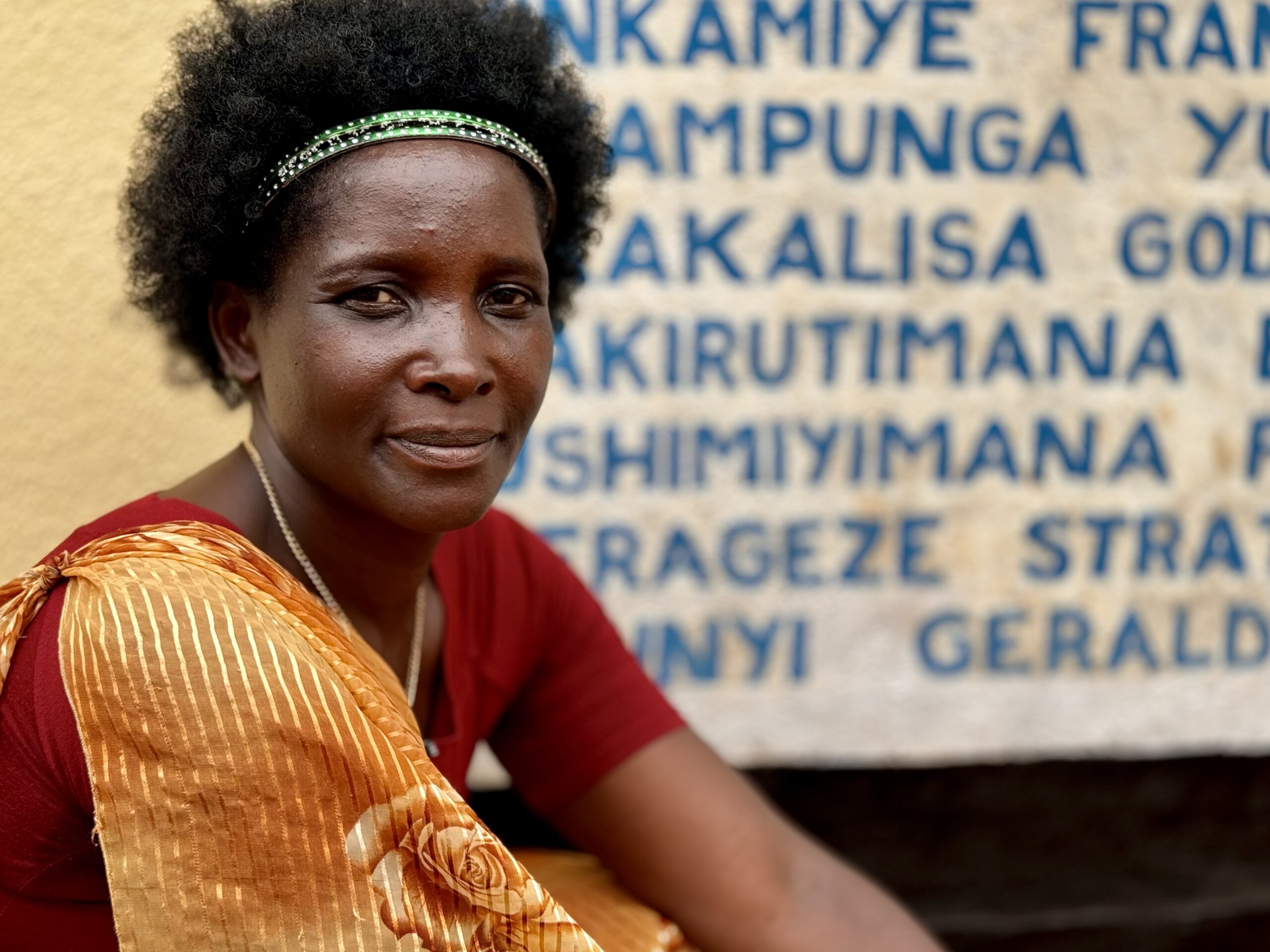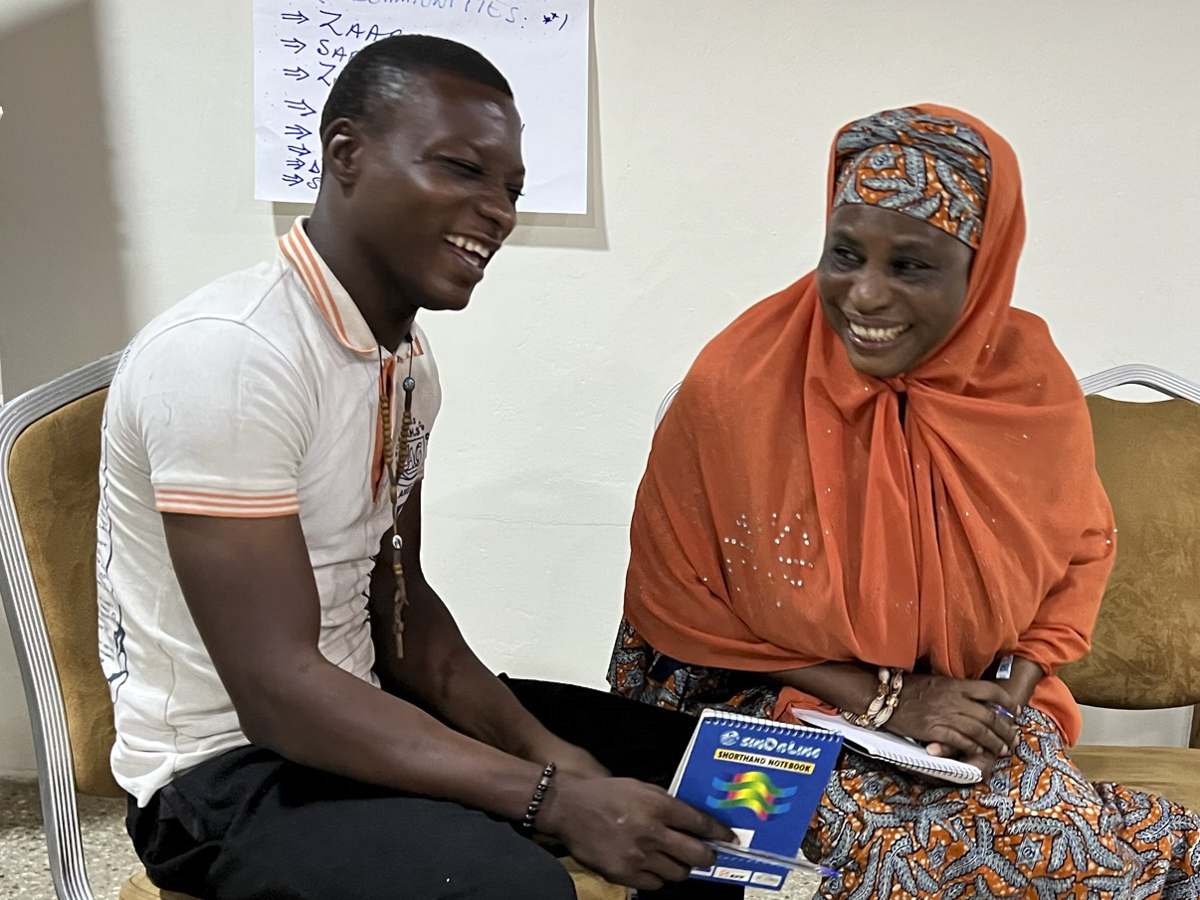The Role of Grassroots Organizing in Overcoming Development Challenges in Africa and Beyond January 22-26, 2024 Twenty-four people from the U.S., Ghana, Tanzania, and Namibia traveled to Rwanda…
Opening of Rural Rwandan Health Clinic Highlights Innovative Development Model in Africa
FOR IMMEDIATE RELEASE
January 4, 2010
Contact: John Baumann, SJ, Founding Director and Director of Special Projects: 510-655-2801
Opening of Rural Rwandan Health Clinic Highlights Innovative Development Model in Africa
Congregations Rebuilding Community in Rwanda celebrates their successful grassroots campaign to press Rwandan government to allocate resources based on locally-identified needs
Leaders from Congregations Rebuilding Community in Rwanda offer a victory dance to mark the health center opening
On September 26, over 900 residents of the rural village of Mumeya, in southeastern Rwanda, gathered to celebrate one of the nation’s first successful grassroots campaigns to get the central government to invest resources in a development project identified and built by local residents.
Villagers and public officials attended a formal celebration and opening ceremony for their community’s first-ever health center, built with the assistance of the Ministry of Health and Kirehe public officials, which emerged as the community’s top need after an extensive campaign to identify their concerns. As a sign of the civic-government partnership in building the clinic, public officials present included Kirehe’s Mayor, the Chief of Police, the District Development Officer, and the District Advisor to the Mayor. While Mumeya leaders prepared special food and drinks and performed traditional intore dancing, the Mayor made further commitments to assist in the construction of a new road to the clinic (the current one is impassable) and provide additional economic assistance in meeting Mumeya’s long-term goal for a health center with in-patient capacity and 35 rooms.
Over 400 Mumeya residents have received extensive training and taken leadership in clearing the land, building the foundation, and completing the first three rooms of the health center, as part of Congregations Rebuilding Community in Rwanda (CRCR), one of two international affiliates of PICO – a U.S.-based community organizing network. In response to the Mayor’s commitments, they pledged to contribute money for health insurance, provide the labor to make bricks for the next rooms, and work with neighboring villages to gain additional support for construction. Pastor John Rutsindintwarane, CRCR’s Executive Director, has worked in Mumeya since 2006 to help residents identify, research and act collectively on community needs.
“When we realized that we needed a clinic as highest priority, we did not know how to build it,” said community leader Ezra Nkubana. “We did not have money, no dream. Pastor John asked us to attend training that was followed by action and next steps. His simple language and approach captured many hearts, and we started to put learnings into actions. I remember one old man said ‘I will die before I see the health center’. Here he is!”
“When I got community organizing training, I did not know the end results,” continued resident Poline Usabyeneza. “What I have discovered is more than building a clinic. The skills that I have gotten can enable me to create beyond projects: there are leadership skills, good governance, peace-building, reconciliation and accountability, health issues, and rebuilding our country after the war.”
Access to quality health care is crucial in Rwanda, where 80% of the nation’s nine million people live on barely one U.S. dollar a day and have a life expectancy of 45. The mortality rate for children under five is over 20%. The people of Mumeya are overcoming these obstacles as leaders who organize their community, their labor and resources to lift themselves out of
poverty. They are setting an example for other Rwandan communities who also want to build their own organizations. Working with CRCR and PICO, Mumeya leaders are excited to continue work to finish the clinic, and undertake other projects for their isolated community.
“I know 12 women and children who died before they got to the hospital,” said Mumeya resident Specioza Dusengimana. “This child who I have in my hands is called Uwimana PICO. Her mother died on the way to the hospital. Uwimana means “I belong to God” and PICO means “People Improving Communities through Organizing”. Her mother died the very day we finished the first three rooms.”
CRCR is an affiliate of PICO, a network of 53 faith-based community organizations in the U.S., with a growing international effort in Central America and Rwanda. PICO engages faith communities around local concerns and helps build their grassroots leadership, knowledge and power to help people make major quality of life improvements in their communities. For more information, visitwww.piconetwork.org and click on the international link on the top right of the home page.
###


